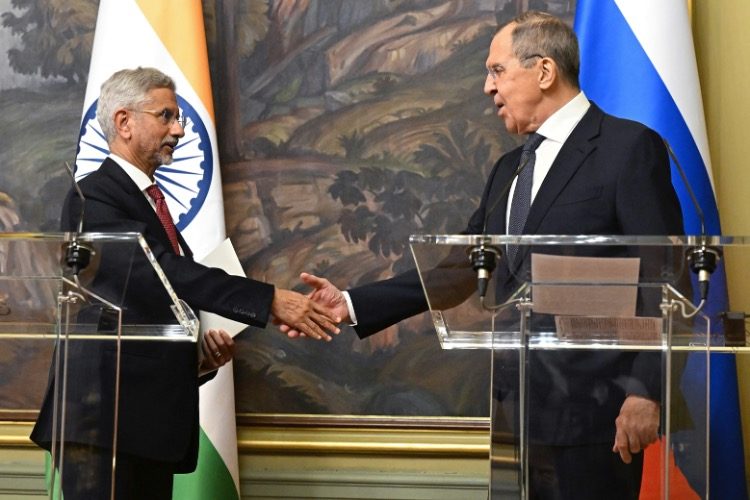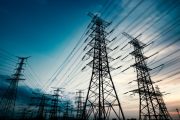
On December 27, Russian President Vladimir Putin met Indian External Affairs Minister Subrahmanyam Jaishankar at the Kremlin, underscoring Russia’s efforts to overcome its isolation from the West by pivoting to an increasingly strong Asian nation.
From the start of Russia’s military operation in Ukraine, India has adopted a neutral stance, emphasizing its historically good relationship with Moscow and maintaining its right to deal with a multipolar world in its own way.
Moreover, Russia has long been the most critical military provider for India, and as international sanctions in response to the Russia-Ukraine conflict began limiting Russian oil sales, India rapidly increased its purchases to become one of the key purchasers of discounted Russian petroleum.
By doing so, India has stalled U.S. attempts to alienate Russia, giving a much-needed financial boost to Moscow’s coffers.
“Everything is in your hands,” Putin said, “and I can say that we are successful because of your direct support.”
Putin added that he planned to discuss the Russia-Ukraine conflict and invited India’s Prime Minister Narendra Modi to visit Russia.
Jaishankar said he brought Putin a written letter from Modi in which the Indian leader voiced his thoughts on the state of Russia-India relations.
Earlier on December 27, Jaishankar held a separate talk with his Russian counterpart, Foreign Minister Sergey Lavrov. He said his discussions would entail “the state of multilateralism and the building of a multipolar world order.”
“We will focus on bilateral cooperation in different spheres, adjusting it to changing circumstances and demands,” Jaishankar said, based on a Russian video broadcast. “We will discuss the international strategic situation, conflicts and tensions where they are.”
Lavrov said on December 27 that his country’s ties with India go beyond bilateral relations.
The two nations are keen on “building an international political and economic system that would be open and fair for everyone”, he said in televised remarks ahead of the meeting.
Notwithstanding the Biden administration’s efforts to make supporting Russia expensive, U.S. officials have avoided openly lambasting India.
Rather, Biden and others have wooed Modi, even inviting him to a state dinner over the summer.
That courtship has persisted even after U.S. law-enforcement officials slammed Indian officials in November for planning the assassination of an American Sikh activist in the United States.
While Biden generally has highlighted America’s common ground with India, the Indian government’s alleged clamp down on human rights remains a clear point of friction in U.S.-India ties.
During the state dinner, protesters demonstrated against Modi’s efforts to crush opposition.
The relationship between both leaders is propelled by Modi’s plans to portray his country as an economic superpower and Biden’s need for a powerful ally to act as a counterbalance to Russia and China.
After meeting with Jaishankar for more than an hour, Lavrov praised India’s “responsible approach” to global issues, which he said applied to its position on Ukraine.
Lavrov said both men had spoken about the war, but did not elaborate, noting that it was one of various issues, such as arms production and nuclear energy collaboration, that were discussed.
New Delhi is heavily dependent on Russia for its arms imports, and Moscow has aided India to build nuclear and space capabilities.
A career diplomat, Jaishankar has described the close relationship between India and Russia as one of the few constants in a rapidly changing world.
His book about how India must carefully navigate a multilateral diplomatic path is regarded as a definitive take on the country’s foreign policy under Modi.
“Typically, defense, nuclear and space are collaborations you only do with countries with whom you have a high degree of trust,” Jaishankar had told members of the Indian diaspora in Moscow on December 26.
However, India-Russia ties have displayed cracks, amid Indian worries that Russia’s pariah status will drive Moscow ever closer to China.
On another potential competitive arena, all three countries are more forcefully positioning themselves as models and leaders for developing nations around the world.
In an instance of how India is trying to walk the tightrope between Western pressure and its relationship with Russia, this year is the second year in a row that Modi has skipped his traditional in-person summit meeting with Putin.
At the same time, India has refused to support resolutions at the UN that denounced Russian actions in Ukraine.
Associate Professor Happymon Jacob, who teaches Indian foreign policy at Jawaharlal Nehru University in New Delhi, said that besides India’s increased purchases of Russian oil, the relationship had been less close since the Russia-Ukraine conflict.
For instance, India’s decision to buy three submarines and co-develop combat aircraft and helicopter engines with France, announced during Modi’s visit to the European country in July this year, is bolstering defense ties between India and the West.
The two countries also agreed to co-develop a combat aircraft as well as engines for heavy-lift helicopters, which can carry weights of over 50 tons.
France and India are also working “towards adopting a Roadmap on Defence Industrial Cooperation,” according to a Horizon 2047 road map document published in July.
“Defense ties have always been the basic foundation of our relations. France is an important partner in ‘Make in India’,” said Modi, showcasing his country’s key aim of boosting co-production to bolster domestic manufacturing, thereby cutting imports.
However, despite deals with France and the United States, India’s reliance on Russia will most likely continue for at least another decade, defense and security analysts have predicted.
India will remain dependent on Russia to some degree, particularly in the energy and defense industries, Jacob added.
“Russia is the only country that has provided India with nuclear reactors — notwithstanding the fact that India signed a nuclear deal in 2008 with the United States,” he said.


